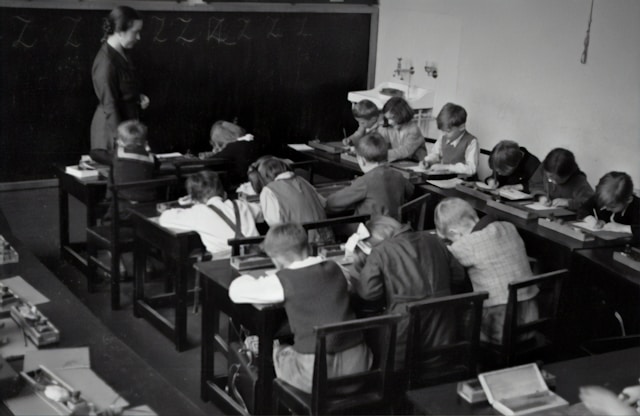Introduction
Westerhall Academy, an institution famed for shaping the destinies of England’s future elites, was more than just a school. Nestled amid the lush countryside, its reputation for rigorous academics and an influential network was unmatched. It was here that Nathan Fielding, a bright scholarship student with more ambition than wealth, sought to carve a path that would transcend the school’s prestigious, but conventional, expectations.
Autumn Challenge
Autumn was in full swing, and the historical campus was a tapestry of gold and crimson leaves. Nathan, known for his astute observations and strategic mind, thrived in environments where the stakes were high and the outcomes uncertain. His keen interest wasn’t limited to academics; he was fascinated by probabilities and the dynamics of human decision-making.
The Annual Retreat
As Westerhall prepared for its annual retreat, a tradition designed to foster leadership and teamwork, Nathan discovered a unique opportunity to test his theories in an unconventional arena. The buzz among the student body was the launch of Fortune Ox 777 Casino’s new online platform. It was a topic that captured Nathan’s interest, not for the allure of gambling, but for the patterns and odds it presented.
The Gambling Experiment
The retreat was held at a secluded lodge, a place away from the distractions of everyday school life. Here, students were encouraged to engage in activities that built character and leadership skills. For Nathan, however, it presented a different kind of challenge. With the retreat coinciding with the casino’s launch, he proposed a daring experiment: a weekend-long wager using the casino’s various games to apply real-world economics and mathematical theories.
Setting the Stage
His proposal was simple. Using Fortune Ox 777 Casino, which offered everything from virtual slot machines to strategic card games, the students would engage in a series of bets. They would track their results, analyze the outcomes, and see who could most effectively apply their classroom knowledge to manage their virtual bankrolls.
Interest in Nathan’s project spread quickly. The allure of testing academic theories in such a practical, exciting way was irresistible. Students from diverse fields—mathematics, economics, psychology—joined in, eager to see how their knowledge held up under the unpredictable pressures of real-time gambling.
The High-Stakes Game
As the weekend progressed, the virtual stakes grew higher. Nathan’s ability to detach emotion from betting led to early successes, positioning him as a frontrunner. But it wasn’t just about winning. The exercise sparked lively debates about risk management, the psychology of gambling, and the ethical dimensions of betting.
Reflections and Lessons Learned
By Saturday night, the focus had narrowed to a high-stakes game of blackjack. The group, now deeply engaged in the dynamics of the game, applied various strategies—card counting, Martingale systems, and others learned in their probability classes. The lodge’s common room buzzed with excitement and tension as virtual chips changed hands on the screens.
Nathan, calm and collected, applied a conservative strategy that balanced risk with potential reward. His approach, grounded in probability and a keen understanding of human behavior, paid off. By the end of the night, he had amassed a significant virtual fortune, proving his theories correct.
The Journey Back
The retreat ended with reflections on their experiences. For many, it was a practical demonstration of abstract theories they had only discussed in classrooms. For Nathan, it was a validation of his belief that understanding human behavior and statistical likelihoods could give him an edge in any field, not just gambling.
Returning to Westerhall, the experience remained a topic of discussion for weeks to come. It had been a practical application of their studies, a memorable adventure in the world of probabilities, and, perhaps most importantly, a lesson in the value of thinking differently.
Continuing Impact and Future Prospects
As the academic year progressed, the impact of the retreat’s gambling experiment extended beyond the initial excitement. Nathan’s successful strategies and theoretical applications sparked interest among faculty members, prompting discussions about integrating more real-world simulations into the curriculum. The students who participated began to view their studies through a more practical lens, appreciating the direct applications of their knowledge in everyday decisions.
Furthermore, Nathan’s leadership and innovative approach to learning earned him a newfound respect and recognition among his peers and teachers. This experience not only solidified his reputation as a forward-thinker but also opened doors for him to participate in advanced projects and internships. Inspired by the success of their weekend experiment, Nathan and several classmates began planning a club dedicated to the study of game theory and strategic decision-making, aiming to explore further the intersections of academia and real-world applications. This initiative promised to enrich their educational experience and prepare them better for the complex decisions of the future.
